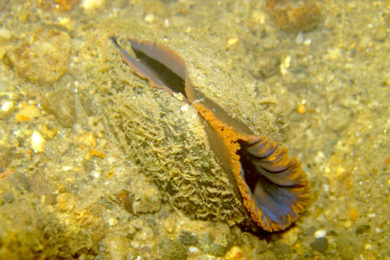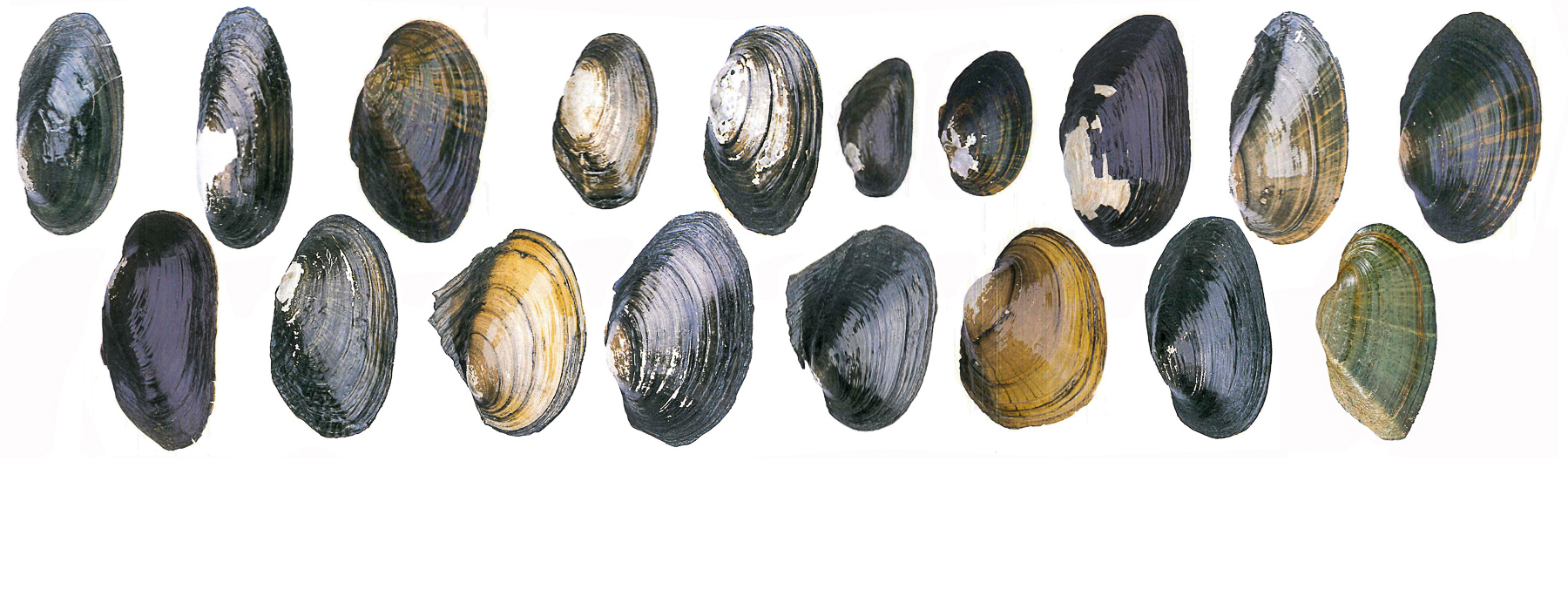Freshwater mussels are recognized as the most endangered group of aquatic organisms in North America, a hotspot for world mussel diversity, with over two-thirds of species considered extinct, endangered, or in need of special protection.
In Vermont, 10 of the 18 native species, or 55%, are listed under the state endangered species law, and several others are considered rare. One species, the Dwarf Wedgemussel, is listed as federally endangered. In Vermont only five native species are not considered to be in conservation need.

Eastern Pearlshell (Margaritifera margaritifera). Photo by Larry Clarfeld
When first learning about freshwater mussels, people often ask – are there more than one kind? Many assume that every ‘clam-like’ creature in fresh water belongs to a single species. Most likely they have only encountered the Eastern Elliptio, a common and widespread species. This misperception often leads people to think that mussels are everywhere and abundant, when in reality, they are among the most endangered aquatic organisms. The loss and decline of freshwater mussels is a symptom of the overall degradation of freshwater ecosystems.
The mission of the Vermont Freshwater Mussel Atlas is to bring past, present, and future knowledge about freshwater mussel biogeography into currency for conservation, science, and society.







